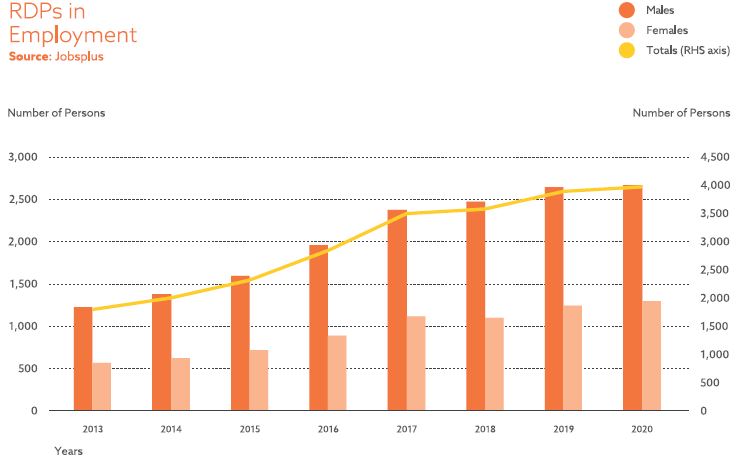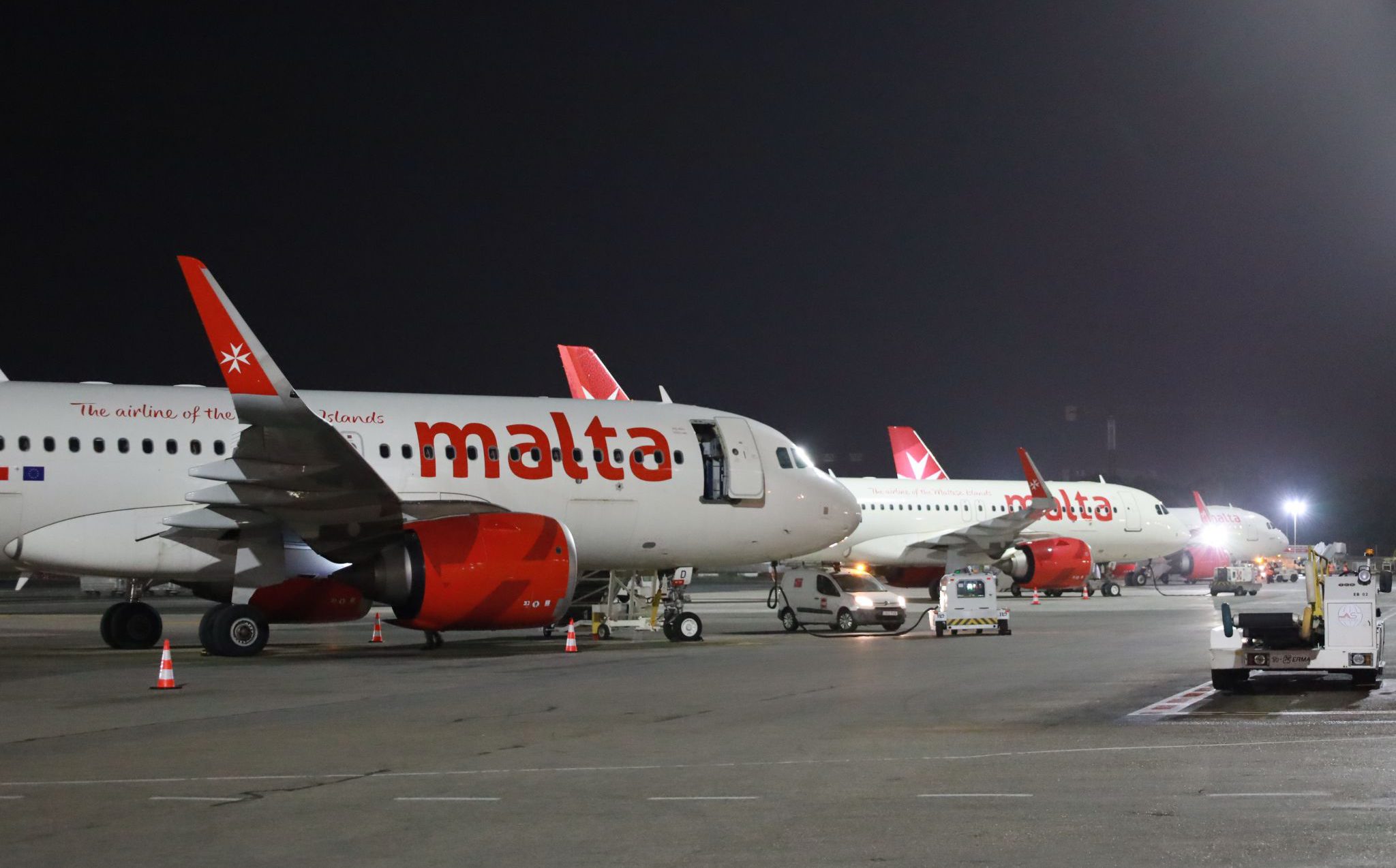The Government has identified 12 key labour market pressure points that need to be analysed, discussed, and ultimately addressed, with skills mismatch and the impact of the mass importation of foreign labour on wages, housing, and infrastructure taking priority.
The pre-Budget consultation document refers to a new National Employment Policy, in consultation stage since being launched in January, that will seek to address the current challenges facing the labour market.
The previous National Employment Policy, launched in 2014, had proposed several reforms in different areas, from childcare to benefits tapering, which provided a basis for the employment sector in the following years.
The successful implementation of those policies resulted in being a major contributing factor to tapping the potential of the local labour market and the subsequent economic growth which Malta experienced, said the document issued by the Ministry for Finance and Employment.
“The points and reforms in the 2014 policy document are now exhausted. The challenges found in 2014, among which are the low female participation rate, the relatively high unemployment rates and the lack of pragmatic incentives to move from social benefits to employment, have been thoroughly addressed over the past years.”
However, it acknowledged that new challenges that have been created since then, partly due to the economic developments and partly due to the new dynamic resulting from the employment reforms enacted.
The 12 main challenges facing the current labour market, as identified by Government, are:
1. Ways to strengthen and sustain the growth of the female participation rate and persons with disabilities in the labour market
Efforts undertaken to increase workforce participation by segments of the population who were previously less likely to be employed have paid off, with the number of women in work jumping by over 60 per cent between 2013 and 2020 on the back of successful policies, such as the provision of free childcare services. In fact, in 2020, for the first time, the female employment rate in Malta exceeded the EU average rate.
Meanwhile, persons with a disability who are in employment have more than doubled since 2013.

2. The reality of underemployment and other impacts of Covid-19
The document notes there is “undoubtedly” an element of underemployment in low-matching educational programmes, pointing out that less than 25 per cent of all graduates from the Faculty of Arts matched their job with what they studied.
This, the document says, is because the demand, or creation of jobs, in that particular area for employment, with those skill sets, is considerably lower than the number of graduates from that area.
“The skills required to fill several employment vacancies do not match the skill set that those looking for employment, or those who are underemployed, possess,” it read.
3. The need of up-skilling and re-skilling the Maltese workforce
The shortage of skilled workers for the manufacturing sector has been worsening.
To address this shortage in relation to the furniture-making industry, the Malta Chamber and MCAST joined forces in June to rejuvinate the sector, attract new blood, and keep it competitive.
MCAST’s work in this regard has been praised, with local advisory firm PKF’s George Mangion lauding the educational institution’s “high standard” in teaching technical subjects and for reviving apprenticeship schemes.
4. Maltese low-skilled workers and the opportunities and threats facing this sector
The opportunities afforded to low-skilled workers have become a point of contention in recent years, coming to fore during the current labour supply shortage. The taxpayer-funded but privately run Community Work Scheme holds over 1,000 low-skilled workers on its books, but the Malta Employers Association has argued that many of these are underemployed, and could be challenged into sectors hard hit by the labour crisis, such as the catering and construction sectors.
5. The lack of salary increases in specific employment areas, leading to a deteriorated standard of living for workers
Speaking at a conference on rethinking Malta’s current economic model in June, MEA director general Joseph Farrugia noted that despite high economy growth, some activities saw higher wage increase than others, and incomes did not rise proportionally – with some increasing dramatically and others stagnating for years.
This point had in fact already been brought up by Finance and Employment Minister Clyde Caruana earlier in the year, in February, soon after the launch of a consultation on employment policy, which is due to be published later this year.
6. TCN workers and the downward pressures they put on salaries
The phenomenon of the mass importation of foreign labour from outside the EU (Third Country Nationals, or TCNs) to work low-paid jobs, especially in the services sector, has characterised the last years, as the “lack of workers in critical economic sectors meant the country had to resort to importing workers from abroad to sustain its growth,” the document says.
7. The volume of TCN workers and the comparable increase in infrastructural, education, healthcare and housing needs
Other costs to the current strategy identified in the pre-Budget consultation document include housing and infrastructural pressures and increased demand for health and education services.
8. The demand of specific industries, primarily construction and tourism, for TCN workers
The construction and tourism sectors overwhelmingly rely on cheap labour, with hospitality industry insiders frankly acknowledging that “most EU citizens don’t even consider working in Maltese hospitality, as their salary expectations are higher than the local industry can sustain.”
With the local labour market unable to compete with other European countries when it comes to attracting workers in these sectors, how exactly this matter will be addressed will be key to the Maltese economy’s future trajectory.
9. The demand of specific industries, such as finance, gaming and engineering, for high-skilled workers
A lack of skilled workers for technical and specialised roles has long been cited as a barrier to doing business in Malta, and has scored highly year after year as a key downside in the EY Attractiveness Survey.
In fact, Malta accounting lobby has tried to take matters into its own hands, going into secondary schools to attract students to a sector facing a “phenomenal” shortage of skilled labour.
The maritime industry has meanwhile called on Government to provide incentives for the promotion of skills and competences required in the sector.
10. Automation and other technological advancements and what this will bring to specific sectors
One answer for the dearth of workers willing to work in the restaurant industry for the wages on offer, put forward by The Malta Chamber’s president Marisa Xuereb, is for the industry to turn to robots in lieu of waiting staff. “Is it so hard to imagine an automatic trolley delivering food to a table?” she asked, a proposal backed by the Association of Catering Establishment’s secretary Matthew Pace, himself an owner of three restaurants.
Meanwhile, local AI expert and founder of ebo.ai Gege Gatt, in an interview published on WhosWho.mt last February, said that although developments so far are unlikely to result in labour market disruption, “in the medium term and for low-skill, linear and predictable jobs, it is likely that the automation will displace around 10-12 per cent of jobs”.
Mr Gatt also outlined how policy can help countries adapt their education and economies to new AI realities to ensure the shift is beneficial to everyone.
In fact, the Government is already taking action on this front, with the Pathfinder scholarship scheme particularly focused on helping students further their knowledge in the AI field.
11. Address the issue of pay inequalities
Whether it’s about the gender pay gap, the falling share of GDP going to workers, or the large variation in pay between industries mentioned above, the new employment policy will aim to tackle inequality.
With the number of workers holding a second job doubling since 2013, it is clear that many are feeling the pinch of the rising cost of living.
12. Disincentivise the black economy and strengthening the rights of workers and employers in the formal one
One note Minister Caruana has been clear about in the run up to the upcoming Budget is that, while the Government will not raise taxes, it will be expecting every business to pay its fair share of tax.
The document notes that some of these challenges are continental and global, citing the UK’s similarly substantial dependency on foreign workers in areas such as logistics and hospitality
“While factors such as Brexit come into play, the fact that third-country nationals returned to their home country when the pandemic started has undoubtedly played a significant role.”
The new employment policy, which the document notes is to be launched in October, is expected to delve deeper into the listed challenges, and will include recommendations to address them.
Valletta ranks 8th most expensive European capital city to live in – study
While London is the most expensive, Bucharest is the most affordable
KM Malta Airlines cancels flights between Malta and Paris on Thursday due to air traffic control strike
Impacted customers can opt for an alternative flight or apply for a full refund
WATCH: MEPs in dialogue – Financial institutions and over-regulation
This is the third in a series of debates designed to engage citizens in the lead-up to the MEP elections ...






